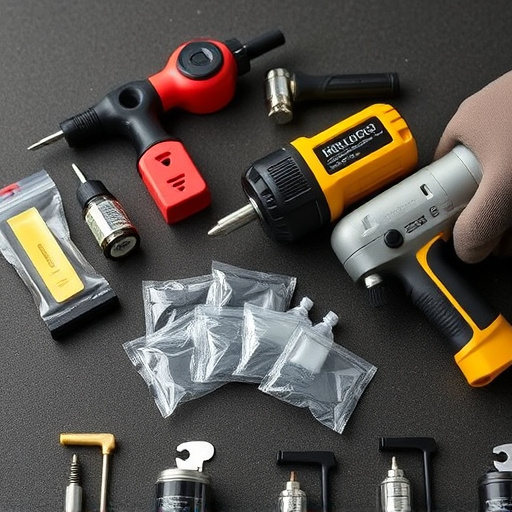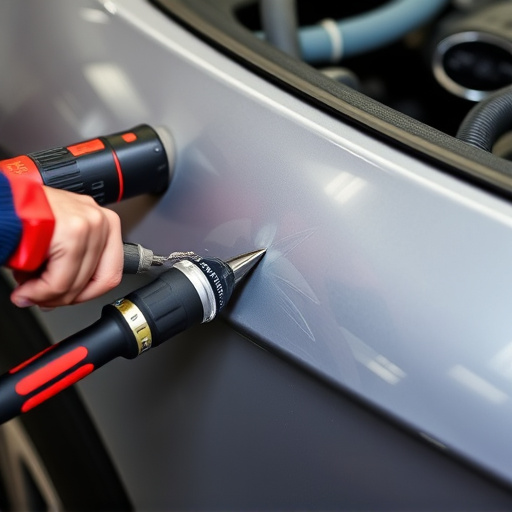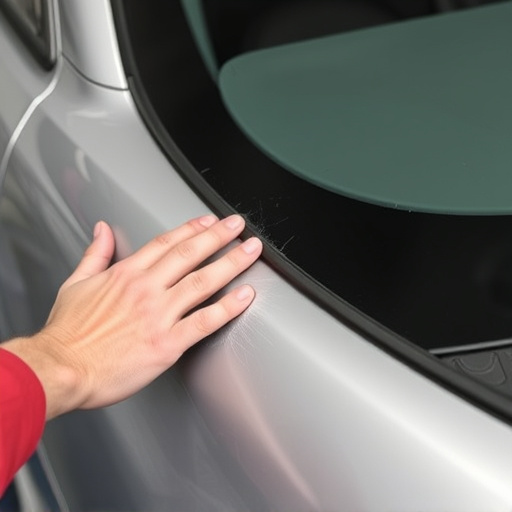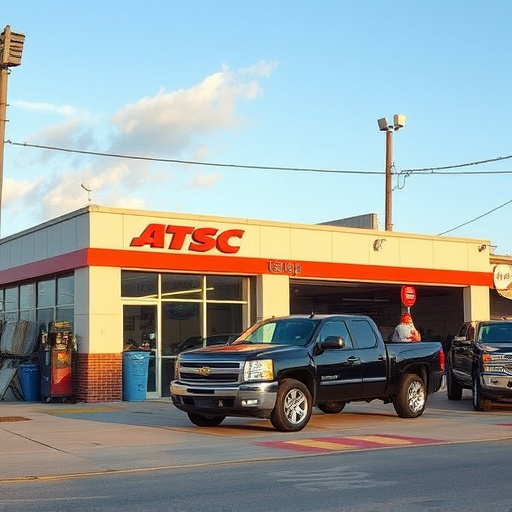Transparency in collision centers drives ethical repair processes by providing customers with detailed insights throughout vehicle repair stages, building trust and fostering honesty. This includes clear communication about parts choices, pricing, and potential fees, empowering informed customer decisions. Active customer participation ensures high-quality, ethical repairs, enhancing satisfaction and strengthening business-customer relationships.
In today’s digital age, consumers increasingly demand transparency in product lifecycles, particularly regarding repairs. A transparent repair process isn’t just a trend; it’s a cornerstone of ethical business practices. This article explores how openness about repairability, disassembly procedures, and replacement parts empowers customers while fostering trust. By embracing transparency, businesses can enhance accountability, promote sustainability, and cultivate long-term relationships with clients who value ethical consumption.
- Unveiling Ethical Practices Through Transparency
- The Customer's Role in Repair Accountability
- Building Trust: Benefits for Businesses and Customers
Unveiling Ethical Practices Through Transparency

Transparency is a cornerstone of an ethical transparent repair process that revolutionizes the way collision centers operate. By shedding light on every step of the vehicle repair journey, from initial assessment to final handover, customers gain unparalleled insight into the work being performed on their cars. This level of transparency builds trust, fostering a relationship based on honesty and integrity.
Moreover, a commitment to ethical practices is evident in the detailed communication provided throughout the process. Customers are kept informed about parts choices, pricing, and potential hidden fees, ensuring they make informed decisions. This open dialogue not only empowers individuals but also ensures that every collision repair service aligns with the highest standards of transparency and customer satisfaction within their respective collision center.
The Customer's Role in Repair Accountability

In a transparent repair process, customers play a pivotal role in ensuring accountability for collision damage repair or car collision repair services. By actively participating in every step of the vehicle restoration process, they gain valuable insights into how their vehicles are being restored to pre-accident condition. This involvement includes understanding the extent of damage, reviewing repair estimates, and confirming that all work is completed as agreed. Such transparency fosters trust between the customer and the repair shop, encouraging open communication about repairs needed, costs involved, and timelines expected.
Moreover, customers equipped with knowledge about their vehicle’s restoration process can better advocate for their interests, ensuring that any additional or unnecessary repairs are promptly identified and addressed. This collaborative approach not only supports ethical business practices but also ensures that the final repair meets the highest standards of quality and customer satisfaction, be it in collision damage repair or vehicle restoration services.
Building Trust: Benefits for Businesses and Customers

A transparent repair process is a cornerstone of ethical business practices, fostering trust between auto repair shops and their customers. By being open about the extent of damage, repair methods, and costs involved in services like car paint services or autobody repairs, businesses send a clear message of integrity. This transparency empowers customers to make informed decisions, ensuring they receive quality auto repair services without any hidden fees or surprises.
For businesses, adopting this approach can lead to stronger customer relationships and loyalty. Satisfied clients are more likely to return for future auto repair services and recommend the shop to others. Moreover, a transparent process can enhance a company’s reputation, setting it apart from competitors who might employ less ethical practices in their autobody repairs. This long-term trust-building strategy is invaluable in today’s competitive market.
A transparent repair process is more than just a business strategy; it’s a cornerstone of ethical practices. By fostering open communication and involving customers, businesses create a culture of accountability that builds trust. This not only strengthens customer loyalty but also positions companies as responsible stewards in the industry. Embracing transparency in repairs sets a new standard, ensuring everyone benefits from enhanced trust and improved relationships.













